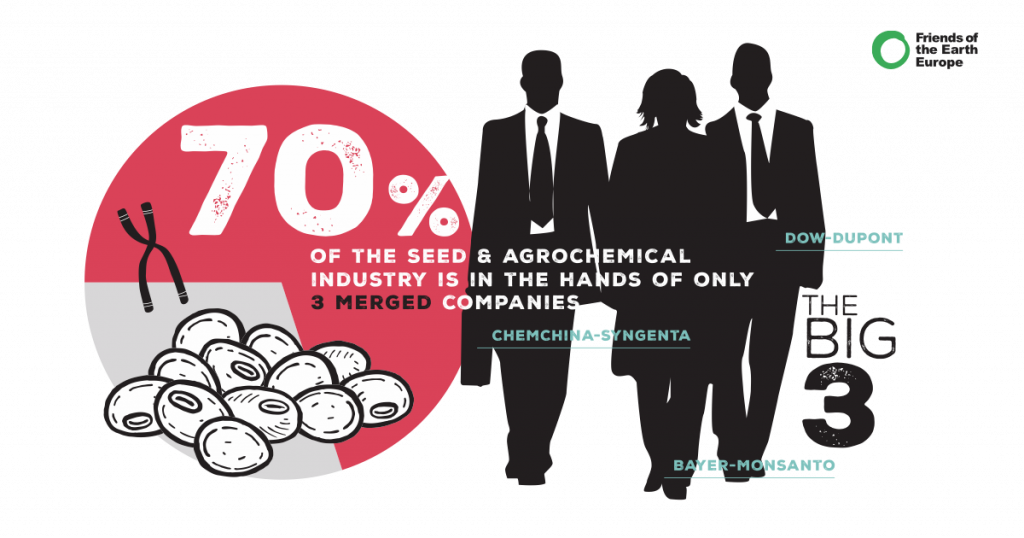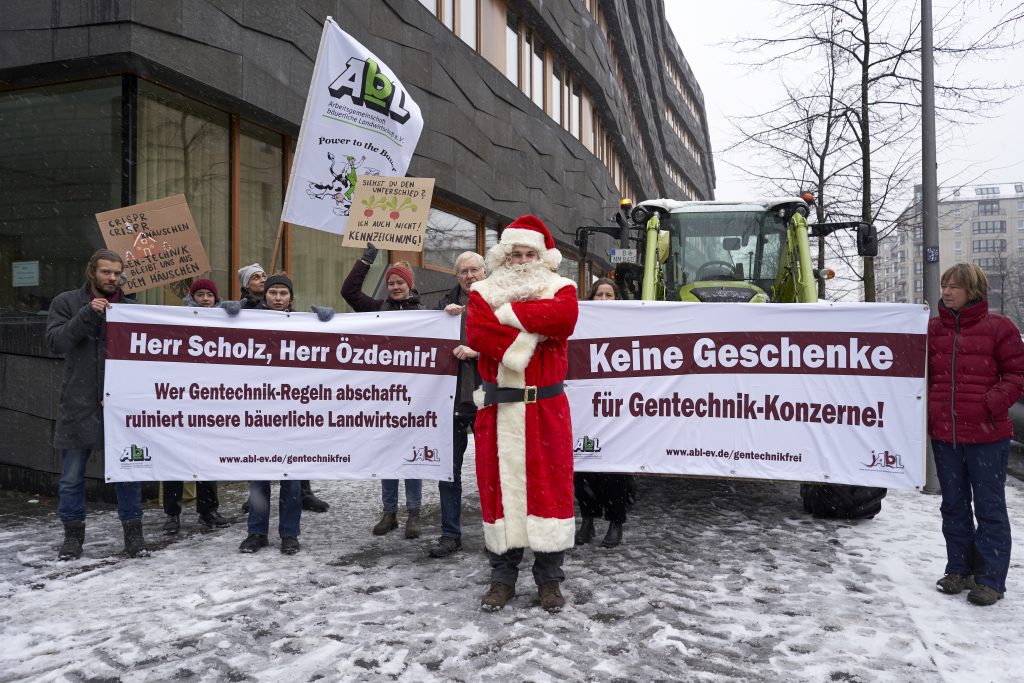- By Mute Schimpf, food campaigner for Friends of the Earth Europe.
We have now officially entered the holiday season, Christmas is around the corner, and from the looks of it, the European Union is ready to give the biggest of gifts to agribusiness lobbies. Europe’s agriculture ministers are poised to vote on the planned deregulation of new GMOs today (11 December 2023) and their meeting poses the question: will they put consumers and nature back on the nice list, or will they only spoil Big Agri?
For years, lobby groups representing giants in the agribusiness sector have been weaving the misleading tale that they hold the key to shifting food production towards sustainability. But there is a big plot hole. What they sell as silver bullets actually are toxic pesticides and genetically modified (GM) seeds. Those corporations have built their fortunes on promoting excessive pesticide use, whose detrimental impacts on biodiversity, health, and agriculture resilience are well-documented.
Unwrapping Big Agri’s naughty gift
They now seek to expand their monopoly over the food and farming sector and boost their already huge profits by sneaking unwanted new GMOs into our fields and plates. The four biggest global pesticides corporations (Bayer, Syngenta, Corteva and BASF) also control the market for new GMOs. Corteva has applied for some 1430 patents on them, while Bayer/Monsanto has applications for 119 patents. Together, they control 40% of the global seed market. With Syngenta, it goes up to 70%. Excluding new GMOs from the current safety and labelling rules would allow them to finally enter the EU food market and sell their GM food to consumers who, when given the choice, do not buy them. What’s more, the evidence suggest that new GM crops will not reduce pesticide use, as promised by the industry, but some are even designed to increase it.

Despite these concerns, the European Commission, agriculture ministers, and some Members of the European Parliament (MEPs) are buying into the notion that these corporations can provide a panacea for sustainable farming. Instead of assessing the truthfulness of the agribusiness’ promises, the EU intend to fully deregulate the new generation of GMOs, ticking off every box on the lobbies’ Christmas wishlist: no labelling, no safety checks, no rules for companies and farmers growing new GMOs, no liability, and all risks and costs bore by the GMO-free sector, consumers and nature.
In recent weeks, agribusiness lobbies already received two naughty presents with the rejection of the EU pesticide reduction plan and the sidelining of the sustainable food systems law. Allowing them a third, in the form of a wide GMO deregulation, would not only perpetuate the dominance of industrial agriculture and corporate control over our food and farming, but also undermine the principles of transparency, consumer choice and democratic decision-making.
‘Tis the season to respect nature, consumers and farmers’ rights
Consumers across Europe have spoken unequivocally about their wishes: the need for clear labelling to be able to choose GMO-free options. According to a survey carried out by Kantar Public for Greenpeace France, an overwhelming majority (92%) of the population would like the presence of new GMOs to be indicated on food packaging. Similar opinions were expressed by German and Dutch citizens: safety checks and labelling are rights, not privileges.
There is not a single sincere argument for enabling pesticide corporations to market new GMOs without even being liable for them. Yet, the EU Commission, over the past three years, has systematically dismissed any arguments against deregulation. The Spanish Council presidency has also solely focused on pushing for a wide deregulation, only now, a few days before the vote, signalling some openness for tiny changes in the proposal. And now, political groups in the European Parliament, mainly conservatives, are rushing through the decision-making process, making it impossible for MEPs to take the time needed to reflect on this far-reaching deregulation plan.
But it’s not too late to make changes to the nice and naughty list. Agriculture ministers, put consumers and nature back on the nice list, vote against untested and hidden new GMOs. The true spirit of the season lies in ensuring that the gift of farming’s future is one that keeps on giving – to the people, to nature, not the agribusiness lobbies.







